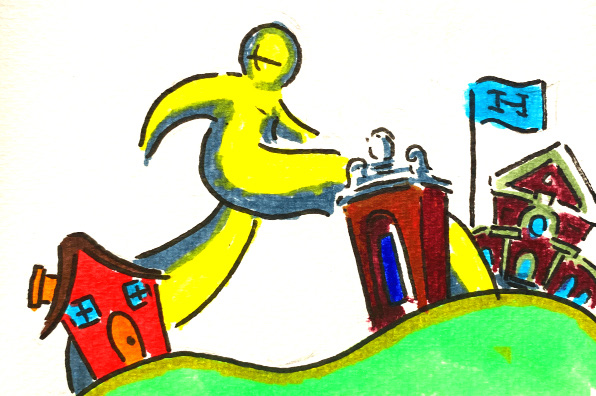Qatar 2022 was the first FIFA World Cup to be hosted in the Middle East, the first to be played in November and December, the first time many Middle Eastern nations like Morocco defeated established stars like Spain, and the setting for one of the most tense and remarkable finals in FIFA history.
It was an extraordinary event that showcased the best in football and shifted attention to a part of the world that the global sports community has ignored for many years. Beyond the pragmatic realities of this World Cup, Qatar 2022 was a perfect microcosm of the 21st century world and illuminated meaningful truths about the current global order.
A number of alleged human rights violations have dominated Western news coverage of the World Cup. It is true that the terrible treatment of migrant laborers during preparations for the World Cup is unacceptable. Qatar’s policies pertaining to the LGBTQI+ community have also rightfully been criticized.
However, in today’s globalized world it is unacceptable to simply accept the Western point of view. It is important to understand cultural norms. In Qatar and many other Arab nations, the topic of LGBTQI+ rights is a far more complex issue than in the United States. Many Middle Eastern nations have strong religious doctrines against homosexuality, and it’s foolish to expect them to change based on Western values.
Qatar, along with many of its neighbors, has been trying to shift towards greater societal tolerance in recent years, but process is gradual. Meaningful change has occurred and is occurring, as seen in the vastly improved conditions faced by migrant workers in Qatar today and in the expanded rights for LGBTI+ people in Qatar.
To the millions that live in other Middle Eastern and North African nations, the Qatari way of hosting the World Cup is refreshing and reflective of their beliefs and cultural norms. The removal of alcohol and the prohibition of dramatic political activism during FIFA 2022 are moves that have been applauded by many outside the Western world.
Coverage in non-Western media of the World Cup has consistently been focused on the sport over political issues. Media in the Middle East North Africa region has gone so far as to call Qatar 2022 the best World Cup in history, with the Khaleej Times writing, “The tournament was a truly spectacular event that even transcended borders and politics.”
The people of nations such as Saudi Arabia and Morocco were able to see their beautiful culture celebrated on the world stage next to Western cultures that have been dominant for far too long. Everyone needs to acknowledge that there is nothing that makes the West inherently superior; it is paramount to celebrate global cultural diversity, even if these differences manifest themselves in ways that Westerners find unacceptable. Qatar 2022 deserves acknowledgement for being more reflective of the globalized world we live in today than previous major sporting events.
Qatar 2022 highlighted the reality that Western meddling in global affairs will no longer be tolerated by the global community. For example, the German government attempted to criticize a lack of freedom of speech in Qatar at FIFA 2022, despite the fact that the German football community has also shown intolerance for key members speaking out. For example, Mesut Özil was pushed out of the German football space for his outspoken support of his Turkish homeland.
German activists, in another deeply hypocritical move, criticized Qatar’s carbon footprint and reliance on natural gas. However, according to The New York Times, “the German government sealed a 15-year deal with Qatar for liquid gas during the tournament and the next World Cup, to be held in North America and Mexico, may carry a larger carbon footprint.”
Both these examples reflect a worldwide trend of Eastern nations pushing back against the West and an overall decreasing tolerance for the West’s hypocrisy. Qatar 2022 has shown that the West can’t exploit and criticize the East in the same breath.
The world is a different place today than it once was, and by celebrating cultural diversity and exposing Western hypocrisy, the FIFA World Cup in Qatar was highly successful in reflecting the world we live in today.
Western nations need to get off their moral high horses and focus on the many alarming problems they face withint their borders (such as their own citizens storming important government offices).
The new world order has set in, and every nation has a fundamental right to set their own stance and write their own story.





